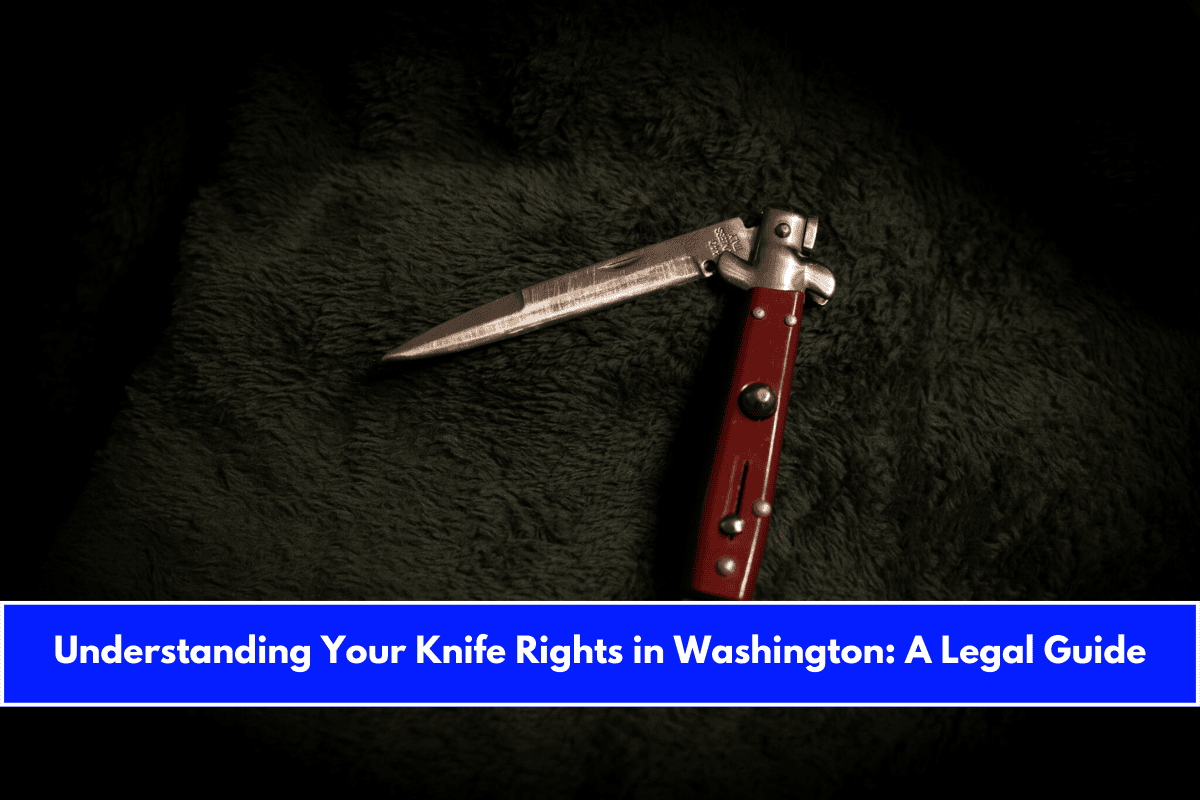Understanding knife rights in Washington requires navigating a mix of state statutes, local ordinances, and practical considerations. Here’s a clear breakdown of what you need to know to stay legal.
Legal Types of Knives
- Most knives-including Bowie knives, dirks, daggers, stilettos, and typical folding or pocket knives-are legal to own and carry openly in Washington State.
- Certain knives are strictly prohibited: switchblades, gravity knives, and butterfly (balisong) knives are illegal to possess, manufacture, or sell.
Open Carry vs. Concealed Carry
| Carry Type | State Law Summary | Local Variations/Notes |
|---|---|---|
| Open Carry | Generally permitted for most knives, including large fixed blades, as long as they are not used to intimidate or alarm others. | Cities like Seattle may have stricter rules, including blade length limits or bans on fixed blades in public. |
| Concealed Carry | Strictly regulated. Concealing a “dangerous weapon” (e.g., dagger, dirk, stiletto, or any knife over 3.5 inches) is generally illegal unless you are hunting or fishing. | Some cities fully ban concealed carry of knives; always check local ordinances. |
- “Furtively carrying with intent to conceal” is a crime, especially for dangerous weapons.
- Folding knives with blades under 3.5 inches are usually safe for concealed carry, but this can vary by city.
Prohibited Knives
- Switchblades, gravity knives, and butterfly knives are illegal to carry or own.
- Spring-assisted knives are legal, but not those that open automatically or by gravity/centrifugal force.
Knife Laws for Minors
- No statewide minimum age for purchasing or owning knives, but minors face stricter rules about carrying, especially in public or at schools.
- Schools and many public buildings have zero-tolerance policies for knives, regardless of age.
Restricted Locations
Carrying knives is banned or heavily restricted in:
- Schools (zero tolerance)
- Government buildings, including courts and law offices
- Federal properties (per Federal Facilities Protection Act)
- Public transportation (recently added restriction)
- Places serving alcohol or cannabis
- Large public gatherings (parades, concerts)
Intent and Use
- The intent behind carrying a knife matters. Using or displaying a knife to intimidate or alarm others is illegal and can result in criminal charges.
- Even legal knives can become illegal if used or carried in a threatening manner.
Local Ordinances Matter
- Washington does not have statewide preemption for knife laws. Cities and counties can-and do-enact stricter rules, especially regarding blade length, fixed blades, and concealed carry.
- Seattle, for example, limits blade length (often 3.5 inches) and bans open carry of fixed blades unless related to your trade.
Key Takeaways
- Open carry of most knives is legal statewide, but local rules may be stricter.
- Concealed carry is generally illegal for fixed blades and blades over 3.5 inches, unless you have a lawful reason (e.g., hunting).
- Switchblades, gravity knives, and butterfly knives are illegal to own or carry.
- Local laws can be stricter than state law. Always check city or county ordinances before carrying a knife.
- Knives are banned in schools, government buildings, federal properties, public transit, and at many public events.
- Never use or display a knife in a way that could be seen as threatening.
For the most accurate, up-to-date advice, consult the Revised Code of Washington (RCW) and consider seeking legal counsel, especially if you have a unique situation or are traveling between jurisdictions.
Sources:
- https://www.akti.org/state-knife-laws/washington/
- https://tkellknives.com/knife-laws-in-washington-state-legal-carry-and-restrictions/
- https://www.shieldon.net/washington-knife-law-the-complete-guide/
- https://www.reddit.com/r/WAGuns/comments/wtsczt/knife_laws_in_washington/











Leave a Reply